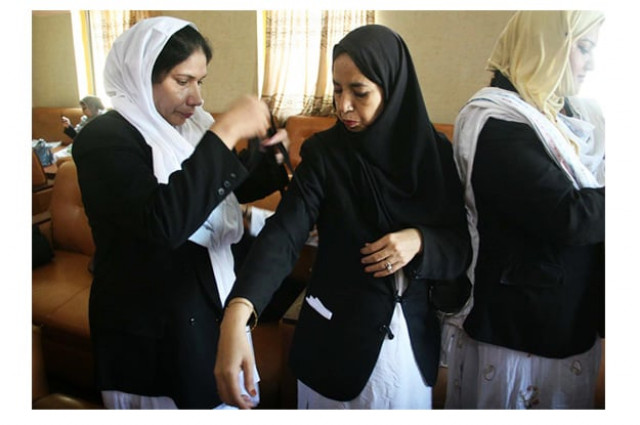Access to justice: Number of women in legal system abysmally low
Only seven of Pakistan’s 112 high court judges were women

In Punjab, women constitute 20 percent of civil judges, but the figure drops to five percent among senior civil judges. PHOTO: ONLINE
According to the 2015 Rule of Law Index that assessed 102 countries, Pakistan ranked 66th and 75th in its criminal and civil administration of justice, respectively.
Article 25 of the country’s Constitution provides specifically for gender equality and promulgation of specific provisions for women protection and empowerment.
In reality, however, women often faced legal inequalities and rarely benefited from legal or constitutional provisions aimed at protecting and/or empowering them.

“A lot of young women lawyers tend to leave the profession at an early stage, instead of pursuing it till they can be elevated to higher ranks,” said Barrister Maryam Atta, who topped the Bar across the Commonwealth.
Many end up in family or corporate law, instead of going towards litigation, she maintained.
She said that women themselves needed to take initiative, practice and progress in the legal profession.
Women in the legal profession said that women’s access to justice was also impeded by existing prejudices within the judicial system. Women, they said, also lacked awareness about their legal rights and relevant service providers.
“We have to give women entering legal profession more space. If we don’t, they will not have adequate representation in policy-making and decision-making,” commented PML-N MNA Shaista Parvaiz, who is also the secretary of the Women’s Parliamentary Caucus in the Parliament.
Stressing the need for a paradigm shift, she called for giving adequate representation to women-related issues and recommended capacity-building and empowerment of women lawyers.
In May this year, PPP’s Senator Babar Awan introduced a bill in the Senate, mandating a 33 percent quota of women judges in the Supreme Court.
Earlier, MQM’s Sultana Saman Jafri introduced a similar bill in the National Assembly, mandating a 50 percent quota for women in the SC.
Both bills were subsequently rejected by the government.
According to the legal adviser for the International Commission of Jurists, Reema Omar, only seven of Pakistan’s 112 high court judges (six percent) were women.
Even in the district judiciary, where women are appointed judges in greater numbers, representation of women judges sharply decreases with seniority.
In Punjab, women constitute 20 percent of civil judges, but the figure drops to five percent among senior civil judges.
Similarly, seven percent of additional district and sessions judges were women, but the number of district and sessions judges was just two percent.
Published in The Express Tribune, September 26th, 2016.



















COMMENTS
Comments are moderated and generally will be posted if they are on-topic and not abusive.
For more information, please see our Comments FAQ